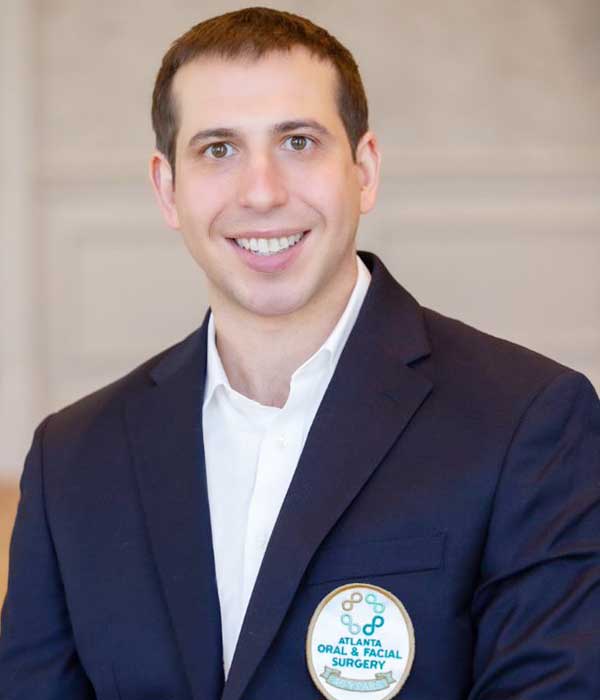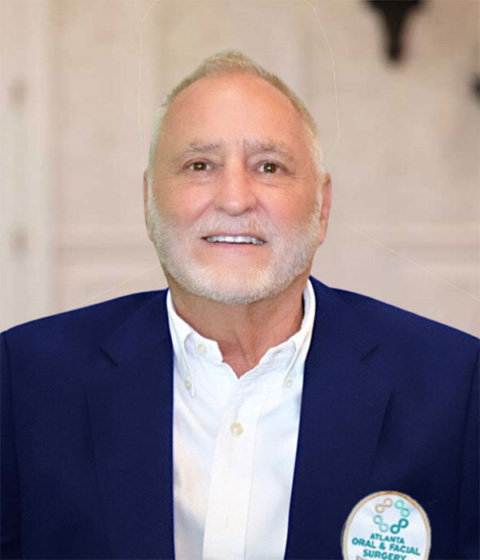General Anesthesia
IV Sedation (“Twilight Sedation”) in Atlanta, Georgia
Our office offers our patients the option of Intravenous Sedation, also referred to as Intravenous Anesthesia, or “Twilight Sedation,” for your treatment. Intravenous Sedation or “twilight sleep” helps you to be comfortable and calm when undergoing procedures.
Your treatment can be completed for you under intravenous sedation. Intravenous sedation or “IV sedation” (twilight sedation) is designed to better enable you to undergo your procedures while you are very relaxed. It will enable you to tolerate as well as not remember those procedures that may be very uncomfortable for you. IV sedation will essentially help alleviate the anxiety associated with your treatment. You may not always be asleep but you will be comfortable, calm and relaxed, drifting in and out of sleep – a “twilight sleep”.
IV sedation/anesthesia is administered and monitored by your doctor therefore eliminating the costly expense of having your treatment carried out in an operating room or same-day surgical facility.
How Is the IV Sedation Administered?
A thin needle will be introduced into a vein in your arm or hand. The needle will be attached to an intravenous tube through which medication will be given to help you relax and feel comfortable. At times a patient’s vein may not be able to sustain a needle for the length of the procedure. In this case, the medications will be administered and the needle retrieved. Both scenarios will achieve the same desired level of conscious sedation. Once again some patients may be asleep while others will slip in and out of sleep. Some patients with medical conditions and/or on specific drug regimens may only be lightly sedated and may not sleep at all.
The goal of IV sedation is to use as little medication as possible to get the treatment completed. With IV sedation, a constant “drip” is maintained via the intravenous tube. At any time an antidote can be administered to reverse the effects of the medications if necessary. IV sedation is very safe! Along with IV sedation there are also different “levels” of sedation available to you in our office. There is nitrous oxide analgesia and oral sedation or nitrous oxide in combination with oral sedation. Once again, all modalities are administered and monitored by your doctor in the safety and comfort of our office environment.

Oral Sedation
Stephen A. Bankston, Erik Belinfante, Bryan Benton, Henry Blair, Thomas David, Abtin Etezadi, Jorge Gonzalez, Chris Jo, Ken Johnson, R. Paul Keim, Christopher Kragor, John P. LaBanc, Steven Levy, Rob McGhee, Richard Meaders, Donald Nunn, Paul “PJ” Schaner, Joseph Slaughter, Jonathan Threadgill, Antwan Treadway, Martin Velez, Robert Wunderle, Robert Wunderle III or Joshua Levy are Board Certified to administer (oral conscious) sedation, commonly referred to as “Sleep Dentistry.”
Sedation dentistry advantages to patients
- Treatment is completed when you are in a more relaxed mood.
- You will have less difficulty sitting through a lengthy procedure.
- Multiple treatments and full mouth restorations can occur at during the same visit.
- Less discomfort after treatment.
Anti-anxiety pills
The most commonly prescribed dental related drugs that treat anxiety belong to the “benzodiazepine” family. Drugs such as Valium, Halcion, Xanax, or Ativan. These drugs decrease anxiety by binding and toning down activity within “fear” receptors in the brain.
When not to take benzodiazepines:
Some of these drugs can affect your liver and heart. It’s important to check with your practitioner and/or pharmacist. You should be sure to inform your doctor or dentist if any of the following apply: known allergy to the drug, narrow-angle glaucoma, pregnancy, severe respiratory disease (COPD), congestive heart failure (CHF), impaired kidney or liver function, depression/bipolar disorder/psychoses, chronic bronchitis and some other conditions. It’s also important to let us know if you are taking other medications. There could be possible drug interactions.
There are two different types of benzodiazepines:
- Sedative-Hypnotics: These drugs induce calm, including drowsiness and even sleep. This sleep state is actually a form of hypnosis which is a form of physiological sleep.
- Anti-Anxiety Drugs: These are drugs which relieve anxiety and induce a state of calm and relaxation.
While benzodiazepines act as sedatives AND anti-anxiety drugs, some are highly targeted at areas within the brain which focus on sleep. Others act in a more specific way and target fear centers in the brain. In most cases, higher doses act as sedatives and induce sleep, while in lower doses, they reduce anxiety without sedation.
Benzodiazepines are also Central Nervous System (CNS) depressants (i.e. there can be a decline in blood pressure and breathing). It is important to note that they shouldn’t be mixed with other CNS depressants such as alcohol. Its important that you utilize the dose your dentist or doctor recommends. It is possible to overdose, and overdoses could lower your breathing to dangerously low levels, which could result in coma or death.
Please note that you shouldn’t travel on your own after you’ve taken any of these drugs. Make sure you have an escort, even if you traveled by bus or foot! It’s easy to become disorientated.

Nitrous Oxide (Laughing Gas)
Nitrous Oxide is a sweet-smelling, non-irritating, colorless gas which you can breathe. Nitrous Oxide has been the primary means of sedation in dentistry for many years. Nitrous oxide is safe, the patient receives 50-70% oxygen with no less than 30% nitrous oxide. The patient is able to breathe on their own and remain in control of all bodily functions. The patient may experience mild amnesia and may fall asleep, not remembering all of what happened during their appointment.
Advantages to using Nitrous Oxide
- The depth of sedation can be altered at any time to increase or decrease sedation.
- There is no after effect such as a “hangover”.
- Inhalation sedation is safe with no side effects on your heart and lungs, etc.
- Inhalation sedation is very effective in minimizing gagging.
- It works rapidly as it reaches the brain within 20 seconds. In as little as 2-3 minutes its relaxation and pain killing properties develop.
Reasons to not use Nitrous Oxide
You should not utilize Nitrous Oxide if you have been diagnosed with chronic obstructive pulmonary disease (COPD). Though there are no other major contraindications to using nitrous oxide, you may not want to use it if you have emphysema, exotic chest problems, M.S., a cold or other difficulties with breathing.










































